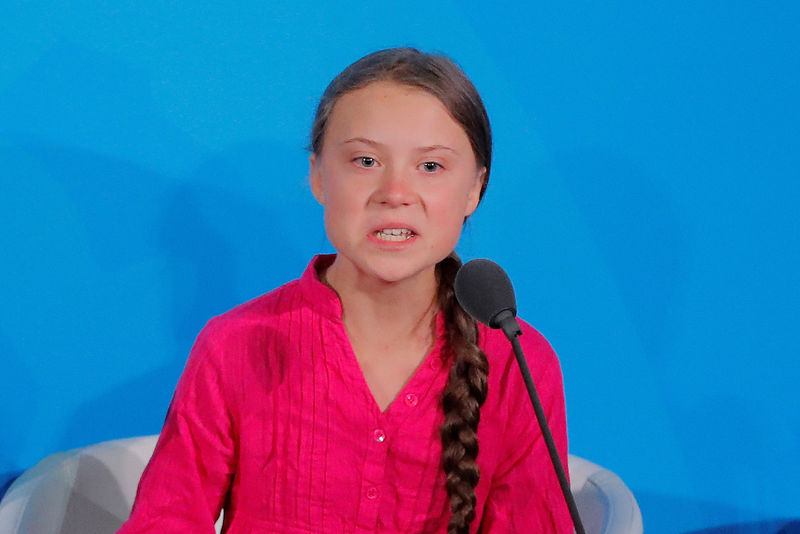By Alan Devall
IOWA CITY, Iowa (Reuters) - Teenage activist Greta Thunberg will take her campaign demanding that world leaders tackle climate change, which began as a lonely vigil outside the Swedish parliament but saw her rise to address the United Nations last month, to Iowa City on Friday.
The 16-year-old Swede is stopping in the Midwestern city, located in the state that will vote first in next year's U.S. presidential nominating contests, as part of her tour of North America ahead of a U.N.-sponsored climate conference in Santiago, Chile, in December.
In recent weeks, millions of people have poured onto streets around the globe in protests inspired by Thunberg to demand governments take emergency action on climate change.
Students in Iowa City said the young Swede's visit was a testament to their efforts to demand change from local leaders.
"We are honored. We are inspired. We are emboldened. And we say, no more excuses," Student Climate Strike Iowa City, which organized the visit, said on Twitter.
Climate activists in Iowa say they have called for local institutions to employ 100% renewable energy by the year 2030 and to cease operations at the University of Iowa's coal-burning plant, among other actions.
A polarizing figure in the climate change debate, Thunberg is venerated by many of her peers and ridiculed by some critics. She is a bookmakers' favorite to win the Nobel Peace Prize this month, though her aggressive style may turn off some on the Nobel committee.
Thunberg denounced world leaders for failing to tackle climate change and accused them of "stealing her dreams" in an impassioned speech at the United Nations Climate Action Summit last month.
With events such as extreme weather, thawing permafrost and sea-level rise unfolding much faster than expected, scientists say the urgency of the climate crisis has intensified since the signing of the Paris accord in 2015.
President Donald Trump intends to pull the United States out of the international deal that aims to reduce carbon emissions. Under terms of the pact, that cannot formally happen before Nov. 4, 2020.

Scientists say existing pledges to curb emissions are nowhere near enough to avert catastrophic warming and have warned that failing to change course could ultimately put the survival of industrial societies at risk.